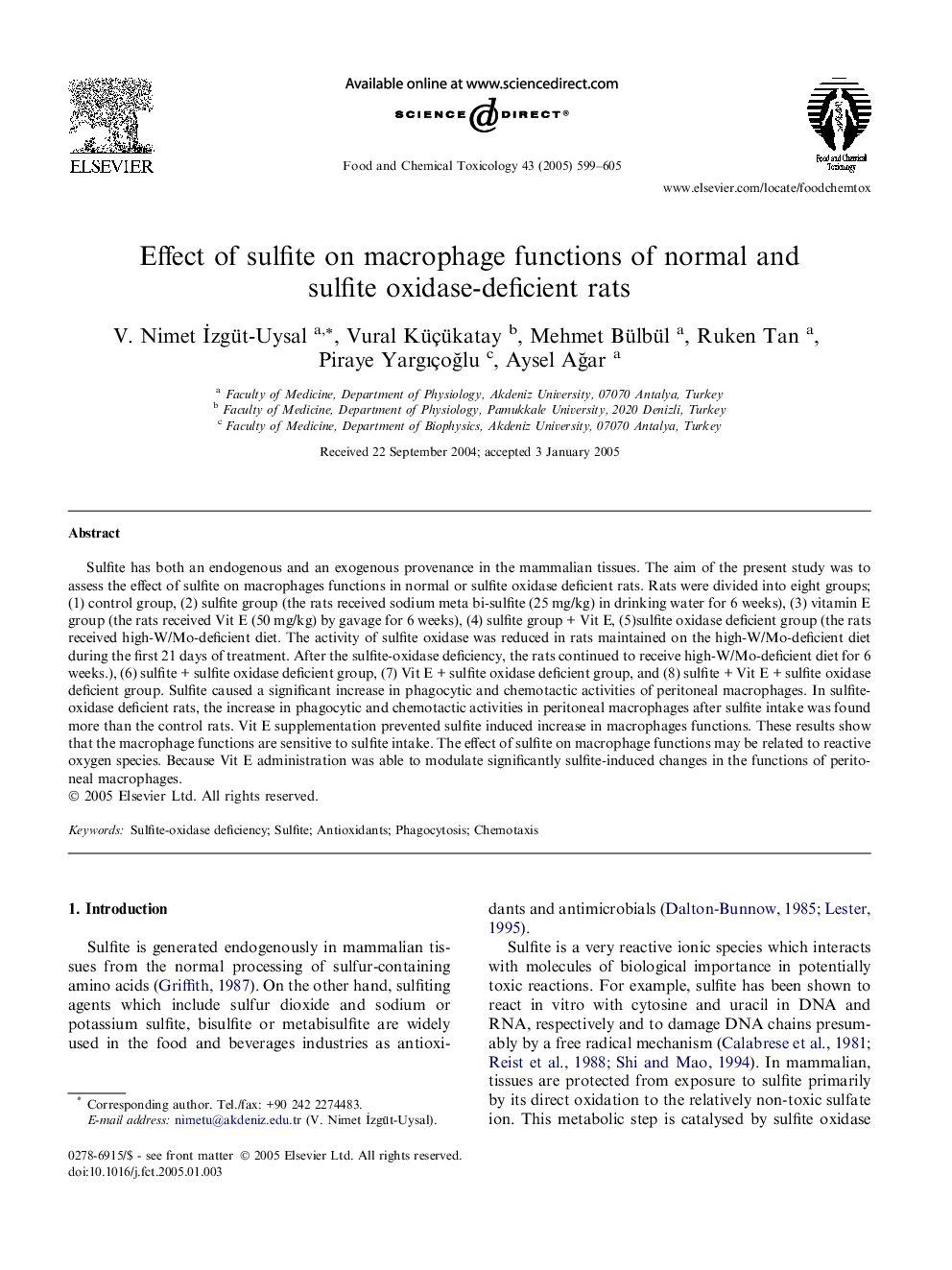| Article ID | Journal | Published Year | Pages | File Type |
|---|---|---|---|---|
| 9031007 | Food and Chemical Toxicology | 2005 | 7 Pages |
Abstract
Sulfite has both an endogenous and an exogenous provenance in the mammalian tissues. The aim of the present study was to assess the effect of sulfite on macrophages functions in normal or sulfite oxidase deficient rats. Rats were divided into eight groups; (1) control group, (2) sulfite group (the rats received sodium meta bi-sulfite (25 mg/kg) in drinking water for 6 weeks), (3) vitamin E group (the rats received Vit E (50 mg/kg) by gavage for 6 weeks), (4) sulfite group + Vit E, (5)sulfite oxidase deficient group (the rats received high-W/Mo-deficient diet. The activity of sulfite oxidase was reduced in rats maintained on the high-W/Mo-deficient diet during the first 21 days of treatment. After the sulfite-oxidase deficiency, the rats continued to receive high-W/Mo-deficient diet for 6 weeks.), (6) sulfite + sulfite oxidase deficient group, (7) Vit E + sulfite oxidase deficient group, and (8) sulfite + Vit E + sulfite oxidase deficient group. Sulfite caused a significant increase in phagocytic and chemotactic activities of peritoneal macrophages. In sulfite-oxidase deficient rats, the increase in phagocytic and chemotactic activities in peritoneal macrophages after sulfite intake was found more than the control rats. Vit E supplementation prevented sulfite induced increase in macrophages functions. These results show that the macrophage functions are sensitive to sulfite intake. The effect of sulfite on macrophage functions may be related to reactive oxygen species. Because Vit E administration was able to modulate significantly sulfite-induced changes in the functions of peritoneal macrophages.
Related Topics
Life Sciences
Agricultural and Biological Sciences
Food Science
Authors
V. Nimet Ä°zgüt-Uysal, Vural Küçükatay, Mehmet Bülbül, Ruken Tan, Piraye YargıçoÄlu, Aysel AÄar,
